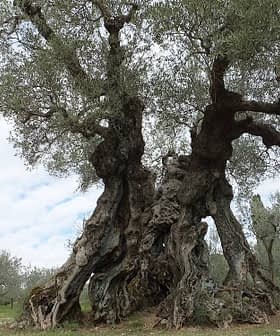Charges Dropped Against Scientists in Lecce Xylella Case
Researchers and officials who were charged in 2015 have been acquitted but are still blamed for omissions and mismanagement. Part of the investigation will be continued by prosecutors in Bari.
 Olive trees in Salento
Olive trees in SalentoThe case to establish responsibility for the spreading of Xylella fastidiosa in Salento, Italy has been dismissed.
Prosecutors in Lecce filed charges against 10 individuals back in December 2015, accusing them of the spreading of a plant disease, willful violation of the provisions on the environment, the committing of fake materials by officials in public documents, fraudulent misrepresentation and the destruction or disfigurement of natural beauty.
It is impossible to prove that unlawful conduct led the spread of the bacterium.
However, investigators now say that it is not possible to demonstrate the causal link between the spread of Xylella and the actions of the 10 suspects.
The judge for preliminary investigation, Alcide Maritati, granted the motion for dismissal filed by the prosecutors Elsa Valeria Mignone and Roberta Licci and issued a 44-page decree.
See Also:Xylella fastidiosa NewsBased on the current scientific knowledge on Xylella, the investigators were forced to follow the test of causation adopted by the Italian courts in the cases of medical responsibility: to move forward with charges, it is necessary to conclude with a very high degree of probability that the event could have been prevented by following the procedures adopted by Italian law.
Prosecutors in the case were unable to prove that if the individuals had followed all the correct protocols, the disease would not have spread anyway.
“It is impossible to prove that unlawful conduct led the spread of the bacterium,” the prosecutors wrote in their motion for dismissal.
Nevertheless, after a step-by-step description of the investigations carried out with the help of the Carabinieri’s forestry and agri-food unit, the prosecutors emphasized in their conclusions that they did find “irregularity, carelessness, and misconduct” on the part of those who were under investigation.
Prosecutors said that there were delays in official communications sent to the authorities regarding both the desiccation of Salento’s olive trees and the discovery of the symptoms of Xylella in the territory. Acts of negligence regarding the sampling of test material and the mismanagement of the experimental fields were also reported.
The decree also contains confidential conversations obtained from emails that were found on seized computers belonging to the suspects.
In these emails, investigators found evidence of the “preponderance of economic interest, that is to say the prospect of obtaining funding for the exclusive benefit of the University of Bari, over the scientific research purpose.”
This ulterior motive would have “clearly influenced the approach of the suspects to the issue at an early stage, even at the expense of the transparency of scientific research,” Maritati, the judge, wrote.
He also noted that “attention was paid to the impacts [of the disease’s spread], in terms of the scientific reputation [of those involved] and to the economic prospects in relation to the management of the phenomenon, which was then managed in substantial monopoly by the University of Bari and the laboratories associated with it.”
Lastly, the report reveals that the phenomenon of the rapid desiccation of olive trees in Salento dates back to the mid-2000s. However, a number of situations occurred in the following years, which led the prosecutors to confirm that “reticence, omissions and deceit have affected the outcome of the investigation.”
Meanwhile, measures to stem the spread of the outbreak that were taken afterwards proved to be “delayed, disjointed, and not in accord with a proper emergency management.”
The part of the proceeding relating to charges of irregularities in the management of public funds, falsification of documents, and fraudulent statements brought by the suspects, and the organizations represented by them, was transferred to the prosecutor’s office of Bari.
In particular, prosecutors there will examine the communications made by the regional phytosanitary observatory in October 2013, which officially recognized the onset of Xylella in Italy for the first time, as well as documents acquired at the Mediterranean Agronomic Institute of Bari.








